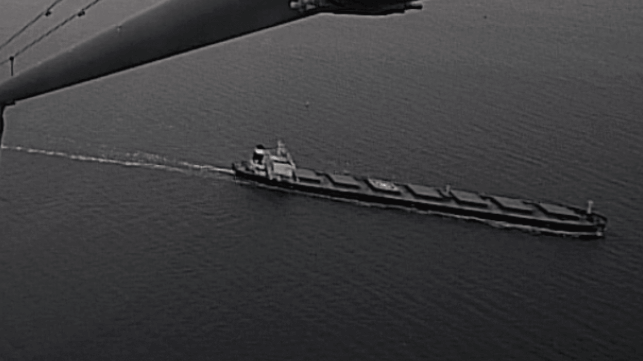Bulker Accused of Cutting Baltic Cables May Have Tried Once Before

European investigators believe that the Chinese bulker Yi Peng 3 intentionally severed two subsea cables in the Baltic last month, likely on behalf of Russian intelligence services. This week, Danish news station TV2 found evidence that Yi Peng 3 may have attempted to snag three other subsea cables in the Kattegat, ten days before the suspected attack in the Baltic.
On Nov. 17-18, two subsea cables suddenly broke off the coast of Sweden. Based on AIS data, Swedish authorities know that the bulker was maneuvering oddly at the sites where the cables were severed; in addition, photos of the ship's bow show that one of its anchors is badly twisted, and an ROV inspection of the damaged cable sites showed clear signs of anchor-dragging. Yi Peng 3 has been anchored just outside of the Danish territorial seas off Jutland ever since, guarded by Danish and German vessels - though no boarding has occurred, since she is in international waters and her flag state (China) has yet to grant permission.
Over the last few weeks, Danish news outlet TV2 - in conjunction with TV4 and Nordic Defense Analysis - examined Yi Peng 3's AIS record in detail, including data from her inbound transit as she headed for Ust-Luga, Russia. They found that on November 7, off Laeso in the middle of the Kattegat, Yi Peng 3 slowed down and came to a stop while passing over three subsea cables.
The maneuver looked suspicious, and there was no obvious reason for a commercial bulker to stop at that location. TV2 decided to investigate further and brought in mini-ROV firm BluEye Robotics to do a site survey. After a short boat trip out to the Kattegat and a few hours of ROV inspection, they found a long dragline and a deep impression, much like the imprint of a dropped anchor. The location and direction of the single dragline corresponded precisely with Yi Peng 3's AIS track from November 7.
"When we look at the sonar recordings, we can see that there are a number of parallel tracks down there, and then over a longer distance there is a much larger drag track, which also has the same course as Yi Peng 3 had," confirmed analyst Jens Wenzel Kristoffersen of Nordic Defense Analysis, speaking to TV2. "It's striking."
